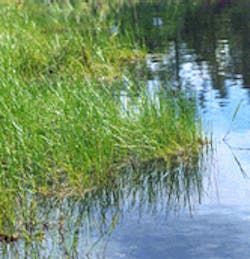WEF to Hold 2005 TMDL Conference in June
The Water Environment Federation (WEF), in cooperation with the Pennsylvania Water Environment Federation and supported by the U.S. Environmental Protection Agency (EPA), the Association of State and Interstate Water Pollution Control Agencies, and the Water Environment Research Foundation, announces the 2005 TMDL Conference.
The four-day conference, scheduled for June 26-29, 2005, at the Hyatt Regency Philadelphia at Penn’s Landing in Philadelphia, is a comprehensive source for timely information on the TMDL program.
Total Maximum Daily Load (TMDL) requirements of the Clean Water Act play a pivotal role in how and if the United States meets its clean water goals. Recognizing its importance and the continually evolving nature of the TMDL program, the conference will feature up-to-date information on technical requirements for developing TMDLs, new research, advancements in water quality monitoring, and the latest regulatory and policy issues.
Technical session speakers will discuss how the TMDL process can be improved, how to approach a complex water pollution problem, and how to use practical strategies to protect watersheds.
The opening session on June 27 will feature Diane Regas, director of the U.S. EPA's Office of Wetlands, Oceans and Watersheds, who will discuss the Agency's TMDL program followed by Kathleen McGinty, secretary of the Pennsylvania Department of Environmental Protection, providing the state's perspective on the same issue.
The opening session will conclude with a panel of stakeholders assembled to provide their perspectives on TMDL implementation issues.
Conference topics include nutrient and TMDL issues, modeling case studies, managing wet weather sources, water quality standards, stakeholder involvement, regulatory and implementation issues, and bacteria, mercury and PCB TMDLs.
In addition, the conference will feature three workshops and an interactive tour designed to provide more detailed information and training on specific TMDL-related topics.
Those encouraged to attend are civil and environmental engineers, consultants, community planners, municipal water and wastewater treatment professionals, local, state and federal regulatory agency personnel, model users and designers, scientists, researchers, industrial wastewater treatment professionals, watershed groups, and association representatives.
For more information about the technical program, registration, and conference fees visit http://www.wef.org/conferences/TMDL05.jhtml.
Founded in 1928, the Water Environment Federation (WEF) is a not-for-profit technical and educational organization with members from varied disciplines who work toward the WEF vision of preservation and enhancement of the global water environment.
Source: WEF
